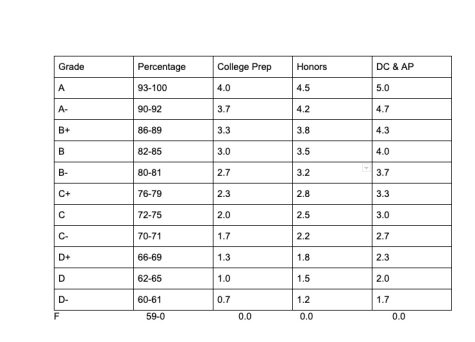Freshman class first to pilot ILEARN, replacement for ISTEP
May 23, 2019
This upcoming year a new type of testing is going to be coming to Indiana schools, leaving iSTEPs in the dust. The new standardized test, known as the iLEARN, will be done within a four week period at the end of each school year– replacing the iSTEP, which has been used in Indiana schools since 1987.
This test was created to be taken on electronic devices at high schools in Indiana, and one positive noticeable difference of it is that it offers testers a much more comfortable and usable interface, compared to the ISTEP’s program Similar to the NWEA testing most students are familiar with, as the test is being taken, it can either become harder or easier based off of the student’s ability to answer correctly or incorrectly. Additionally, this will not be a timed test and according to Charity Flores, Indiana Department of Education’s Director of Assessment, the average student takes about an hour or two to complete each assessment.
Not only will the questions be more suited for each individual, but it will also have a built in glossary, dictionary, thesaurus, and translations for multilingual students. The iLEARN will also provide spellcheck. This seems like a strange jump considering the iSTEP test was timed and provided no additional resources for students. The iSTEP was recently ridiculed for being too difficult by Indiana educators, but is the iLEARN really a valuable replacement with so many options for improving scores?
Highland High School sophomore Hayley Matlock completed the iLEARN test over the last week, but she actually preferred the ISTEP to the iLEARN.
“A lot of the questions were complex and didn’t make sense. I didn’t really have this problem while taking ISTEPs. Also, the majority of questions were fill-in answers rather than multiple choice questions, which I didn’t like.”
Bishop Noll freshman Charlize Bishop says, “a lot of what was seen on the practice test we haven’t learned yet, I found it very challenging.”
After testing is completed, scores will be available to administrators in as little as 12 days. While this all sounds golden for students, isn’t this a bit odd considering the harder graduation requirements that will be put into place for the Class of 23 and future graduating classes?
One of Bishop Noll’s counselors Michelle Arnold believes state testing isn’t necessarily a good way to assess a student’s abilities of intelligence.
“I understand that the state is attempting to make sure that all schools across Indiana are educating students at a certain level, but testing is stressful to the students and teachers, and only offers a small piece of information,” she said. “There is so much more to being well-educated or college/career ready than a score on a test.”
Possibly, having adaptive testing could be beneficial to students, reducing their many concerns about testing, giving them more time to grasp their education. Only time will tell.





